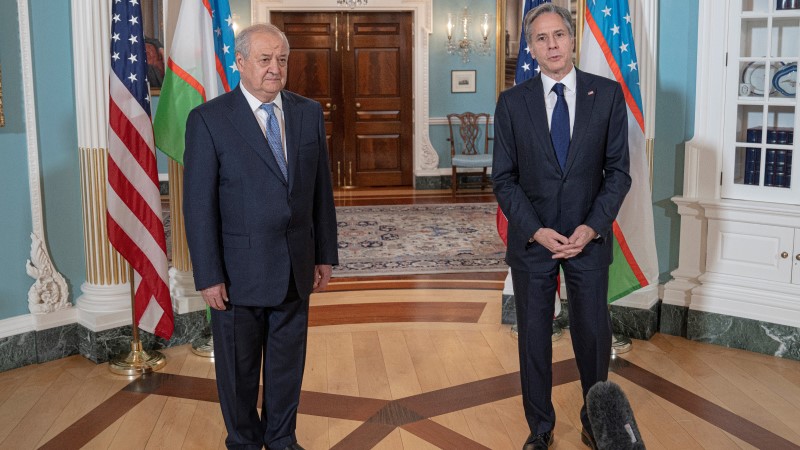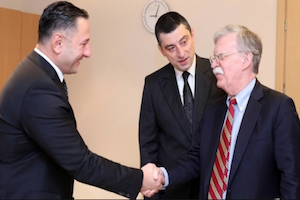After Afghanistan: What is the future of U.S. policy in Central Asia?
By Stephen Blank
October 6, 2021, the CACI Analyst
The U.S. withdrawal and the Taliban takeover of Afghanistan should force American policymakers to rethink America’s position and goals in Central Asia. For years U.S. policy in Central Asia was subordinated to the goal of winning the war even though Washington never fashioned either a satisfactory definition of what winning meant or an Afghan government capable of standing on its own and acquiring the legitimacy and capacity it needed to survive. Despite a more regionally inclusive white paper by the Trump Administration, neither it nor its successor have been able to overcome the primacy of military factors in regional policy and the insufficiency of economic and political means to conduct a truly robust regional policy in Central Asia.

Bolton's Caucasian Tour and Russia's Reaction
By Eduard Abrahamyan
December 17, 2018, the CACI Analyst
On October 24-26, a U.S. State Department delegation headed by National Security Adviser Ambassador John Bolton visited the South Caucasian republics after talks in Moscow. The delegation’s visit to Azerbaijan, Armenia and Georgia was immediately dubbed a reinvigoration of U.S. policy towards the Caucasus and a pragmatic reengagement with the conflicted region. Bolton appeared to refine the evolving U.S. priorities with each country, categorizing them in accordance with political capabilities, shared interests and the roles that Georgia, Azerbaijan and Armenia respectively seek in relations with the West. The visit, however, caused an angry reaction from Moscow, especially given the issues Bolton raised in Yerevan.

Is Washington re-engaging Baku?
By Stephen Blank
January 19th, 2016, The CACI Analyst
Throughout its tenure, the Obama Administration has minimized U.S. involvement with and engagement in both the Caucasus and Central Asia. However, a change in this policy may now be visible. Secretary of State John Kerry’s recent, and first, visit to Central Asia suggests a new interest in an expanded and hopefully regular mutual dialogue with the region. In the case of Azerbaijan, three high-ranking U.S. delegations have come through Baku in the last few months, clearly signifying renewed interest in dialogue and the subjects of their discussion, as revealed in the press, tend to corroborate that impression.




